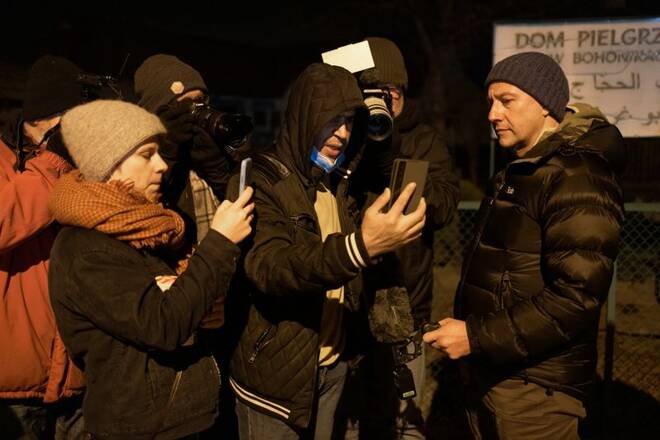Advertisement
Advertisement
‘It’s deadly’: Syrian doctor in Poland warns migrants against journey through Belarus
By:
By Alan Charlish, Fedja Grulovic and Marko Djurica
By Alan Charlish, Fedja Grulovic and Marko Djurica
GRAJEWO, Poland (Reuters) – Syrian doctor Kassam Shahadah settled in Poland as a war refugee three years ago and now volunteers on its border to help desperate Middle East migrants trying to enter after a perilous trek through freezing forest.
He feels lucky to have won residence through asylum. And though he understands the same aspirations to life in the European Union in the new wave of migrants, he has seen enough in his volunteer work to advise them: Don’t do it this way.
“Every child dreams of a better life, of peace and everything that gives him joy and happiness. Everybody would want to escape from that country…It is hell,” Shahadah said, referring to his homeland from which some migrants have come.
“(But) it’s a deadly route,” Shahadah, 54, said in the hospital where he works as a family doctor in the northeastern Polish town of Grajewo. “I would not advise anyone to make such a journey. It is very risky and often ends in failure.”
About 10 migrants are believed to have died in woods along the border with frigid winter setting in, according to local authorities, and many more have sustained injuries or suffered without food or water for days.
The European Union accuses Belarusian President Alexander Lukashenko of deliberately flying in Middle East migrants and pushing them to illegally breach its borders into Poland and Lithuania, in retaliation for EU sanctions imposed over his suppression of protests against his disputed re-election.
Minsk denies the accusations, but the border crisis has escalated into a serious East-West confrontation.
Shahadah, who was drawn to Poland because he studied medicine there about three decades ago, volunteers with a humanitarian charity dealing with newly arrived migrants.
He sometimes steps in as an Arabic translator for hospitals treating migrants, or helps migrant families figure out what happened to loved ones who have vanished or died.
Shahadah said new arrivals are terrified of being forcibly returned to Belarus. “What they have seen, what they have lived through on that side is a nightmare for them,” he said.
(Reporting by Alan Charlish, Yara Abi Nader, Fedja Grulovic and Marko Djurica; Editing by Ingrid Melander and Mark Heinrich)
About the Author
Reuterscontributor
Reuters, the news and media division of Thomson Reuters, is the world’s largest international multimedia news provider reaching more than one billion people every day. Reuters provides trusted business, financial, national, and international news to professionals via Thomson Reuters desktops, the world's media organizations, and directly to consumers at Reuters.com and via Reuters TV. Learn more about Thomson Reuters products:
Did you find this article useful?
Latest news and analysis
Advertisement
